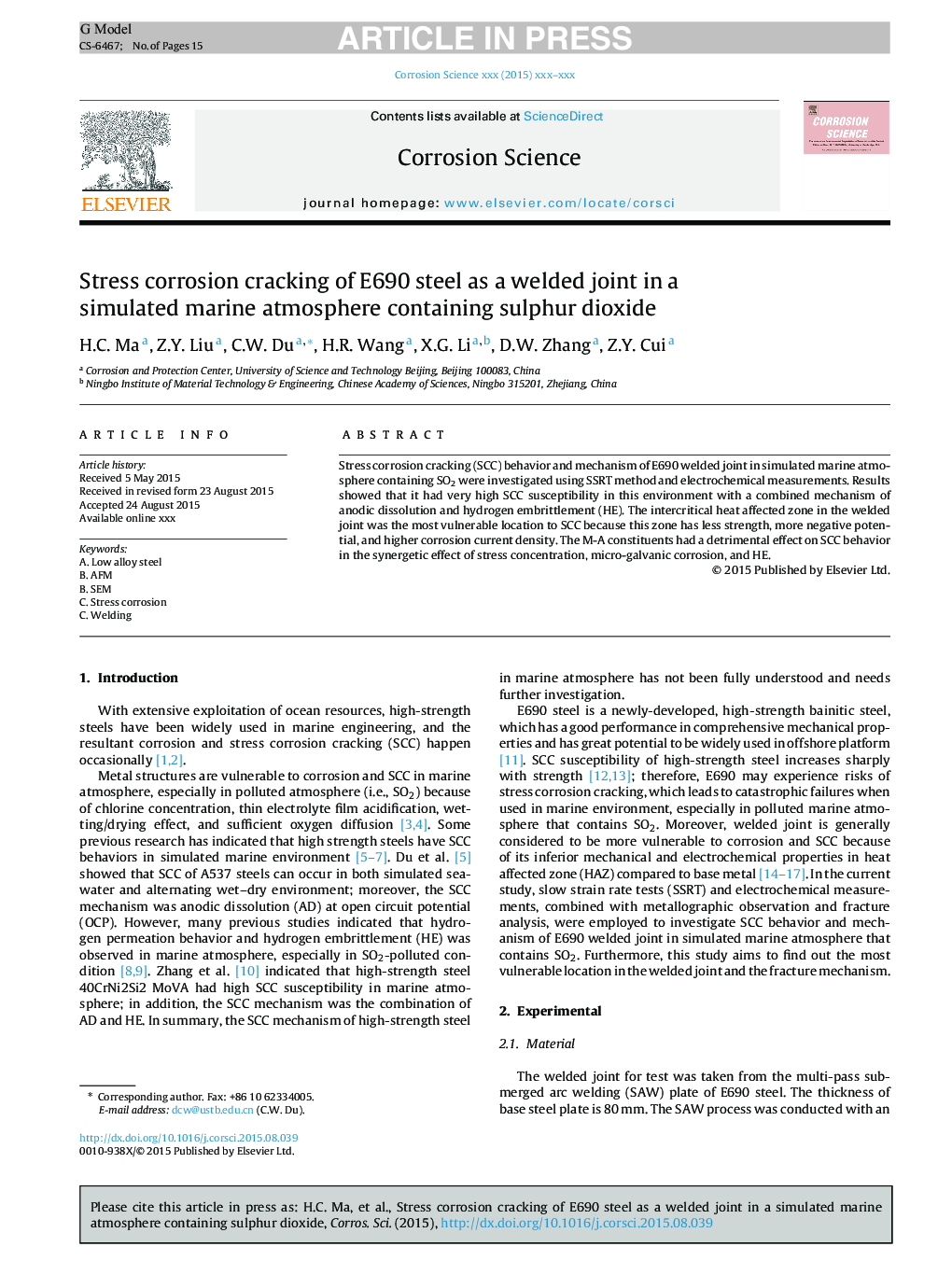| Article ID | Journal | Published Year | Pages | File Type |
|---|---|---|---|---|
| 7895400 | Corrosion Science | 2015 | 15 Pages |
Abstract
Stress corrosion cracking (SCC) behavior and mechanism of E690 welded joint in simulated marine atmosphere containing SO2 were investigated using SSRT method and electrochemical measurements. Results showed that it had very high SCC susceptibility in this environment with a combined mechanism of anodic dissolution and hydrogen embrittlement (HE). The intercritical heat affected zone in the welded joint was the most vulnerable location to SCC because this zone has less strength, more negative potential, and higher corrosion current density. The M-A constituents had a detrimental effect on SCC behavior in the synergetic effect of stress concentration, micro-galvanic corrosion, and HE.
Related Topics
Physical Sciences and Engineering
Materials Science
Ceramics and Composites
Authors
H.C. Ma, Z.Y. Liu, C.W. Du, H.R. Wang, X.G. Li, D.W. Zhang, Z.Y. Cui,
